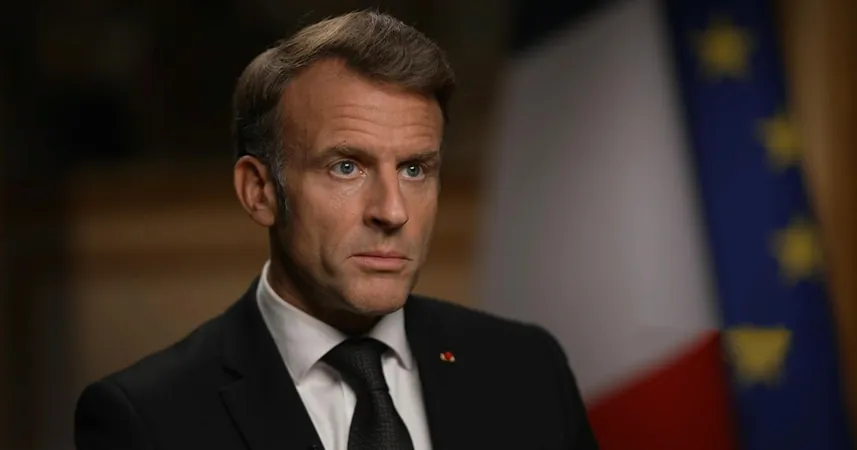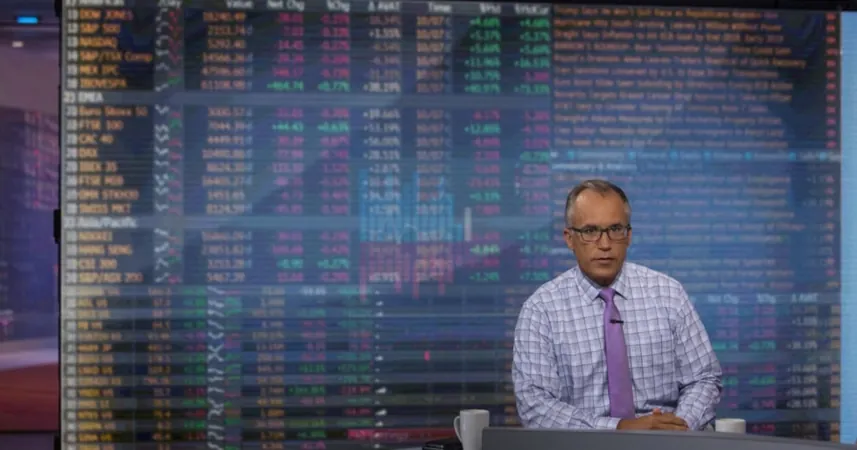
Macron Slams U.S. Ambassador’s Comments as 'Unacceptable': A Diplomatic Showdown
2025-09-21
Author: Emily
In a bold move, French President Emmanuel Macron has rebuked U.S. Ambassador Charles Kushner for publicly criticizing France's efforts against antisemitism. Macron's response comes after Kushner, father of Jared Kushner and a key figure in Trump's administration, linked France's foreign policy to rising antisemitic violence in the country.
In an August letter published in the Wall Street Journal, Kushner expressed alarm over antisemitism's surge in France, accusing Macron's government of not doing enough to combat it. He urged Macron to enforce hate-crime laws rigorously and to enhance security around Jewish institutions, claiming that France's foreign policy emboldens extremists.
Conversing with *Face the Nation* moderator Margaret Brennan, Macron described Kushner's statements as a 'mistake,' emphasizing that such public remarks are not appropriate for a diplomat. 'This is unacceptable,' he declared, asserting that a French ambassador would never make similar comments.
Macron's condemnation was backed by France's foreign ministry, which summoned Kushner following his remarks, citing a violation of the Vienna Convention on Diplomatic Relations, which prohibits interference in domestic matters.
Despite acknowledging that some critics of Israel may harbor antisemitic sentiments, Macron firmly rejected any notion that his criticisms of Israel's government under Prime Minister Netanyahu could be labeled antisemitic. 'Disagreeing with Netanyahu does not make me an antisemite,' he stated.
As the Israeli government, led by Netanyahu—who presides over the most right-wing cabinet in history—continues its aggressive military actions in Gaza, including the killing of Hamas leaders, Macron highlighted the urgent need for a political solution through the recognition of Palestinian statehood.
In a significant push, Macron announced plans for France to recognize Palestinian statehood during a high-profile appearance at the United Nations General Assembly, a move that is expected to garner support from the U.K., Australia, and Canada. This initiative signifies a critical moment for international diplomacy, amid growing frustration over Israel's prolonged military campaign.
The French president's strategy outlines phases for peace, including an immediate ceasefire and the resumption of humanitarian aid to Gaza, emphasizing that recognition of a Palestinian state is crucial to ending the ongoing crisis.
As Macron navigates a fraught diplomatic landscape, his call for a two-state solution stands in stark contrast to the current U.S. administration, which appears to favor a more isolating approach towards Palestinian rights. Macron’s firm stance not only challenges Kushner but also underscores France's commitment to a balanced discourse in international relations.









 Brasil (PT)
Brasil (PT)
 Canada (EN)
Canada (EN)
 Chile (ES)
Chile (ES)
 Česko (CS)
Česko (CS)
 대한민국 (KO)
대한민국 (KO)
 España (ES)
España (ES)
 France (FR)
France (FR)
 Hong Kong (EN)
Hong Kong (EN)
 Italia (IT)
Italia (IT)
 日本 (JA)
日本 (JA)
 Magyarország (HU)
Magyarország (HU)
 Norge (NO)
Norge (NO)
 Polska (PL)
Polska (PL)
 Schweiz (DE)
Schweiz (DE)
 Singapore (EN)
Singapore (EN)
 Sverige (SV)
Sverige (SV)
 Suomi (FI)
Suomi (FI)
 Türkiye (TR)
Türkiye (TR)
 الإمارات العربية المتحدة (AR)
الإمارات العربية المتحدة (AR)